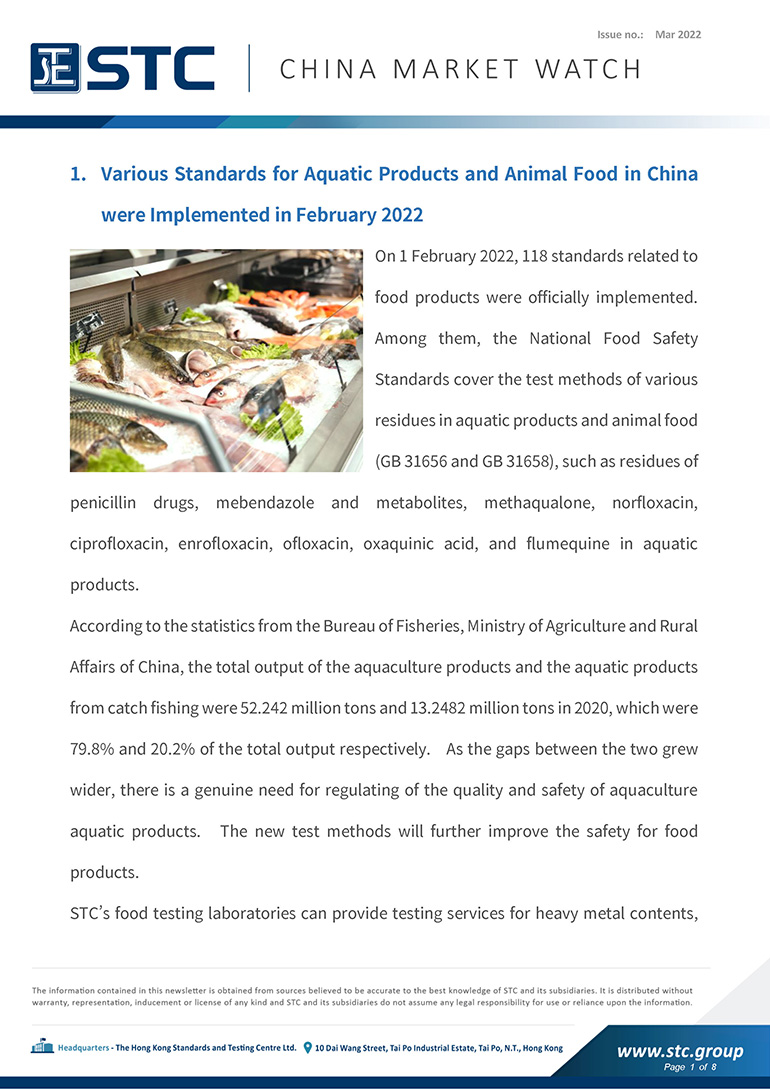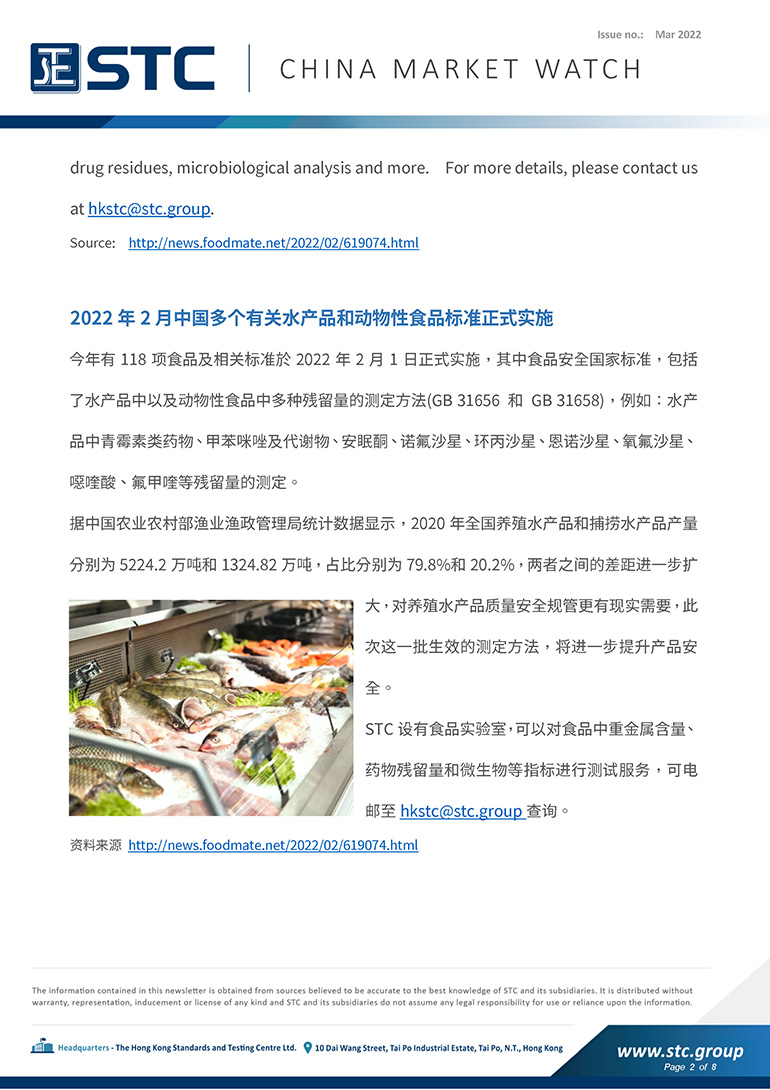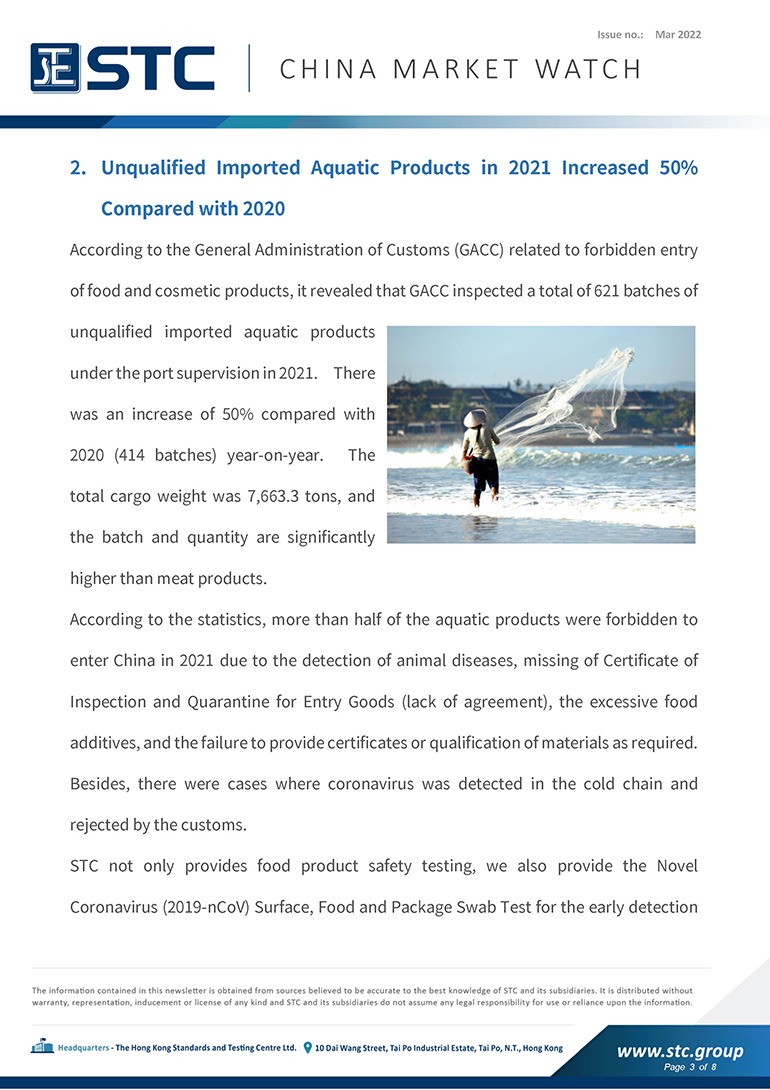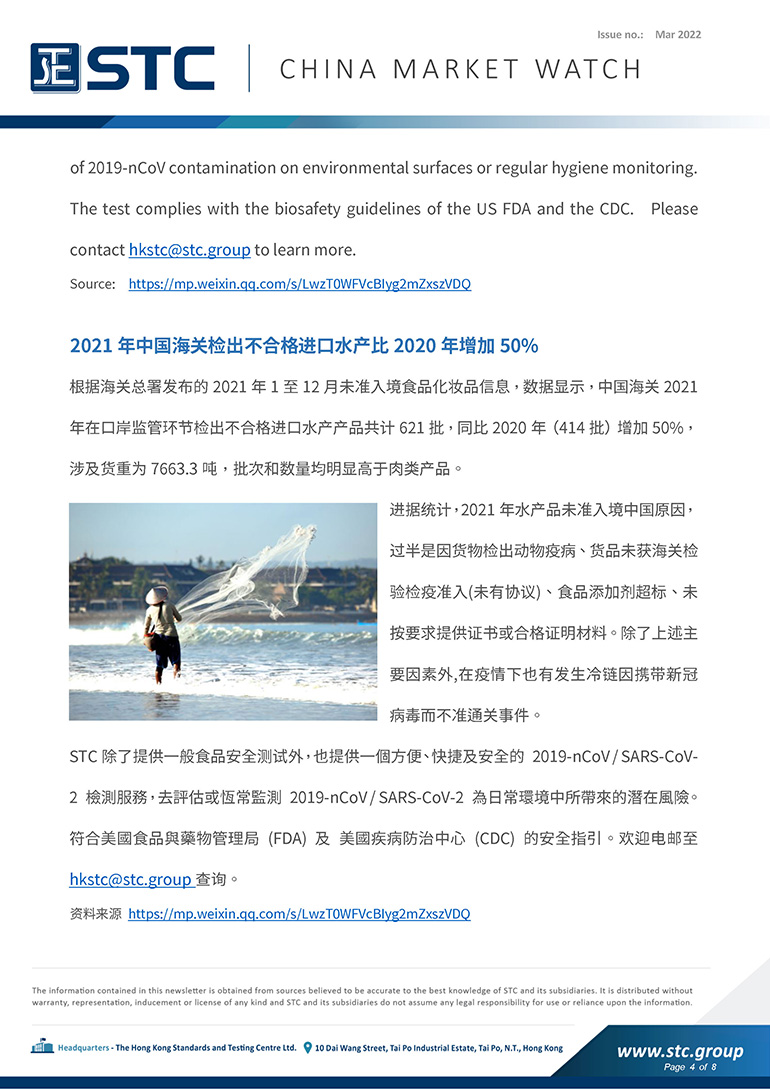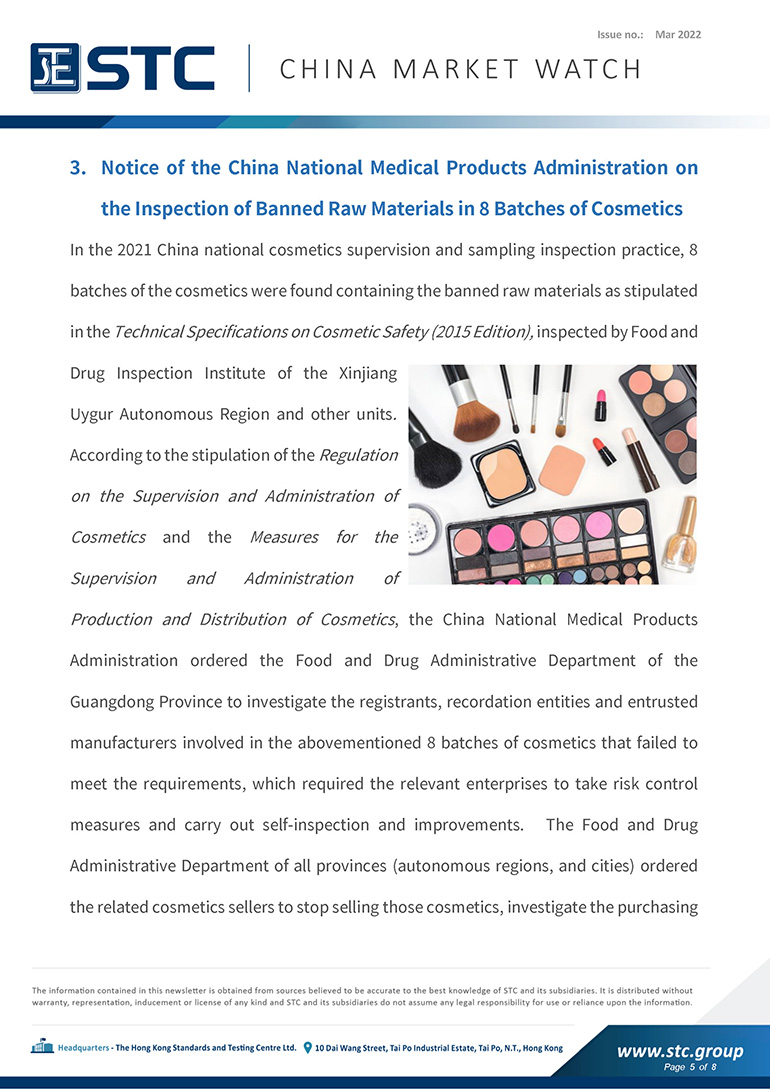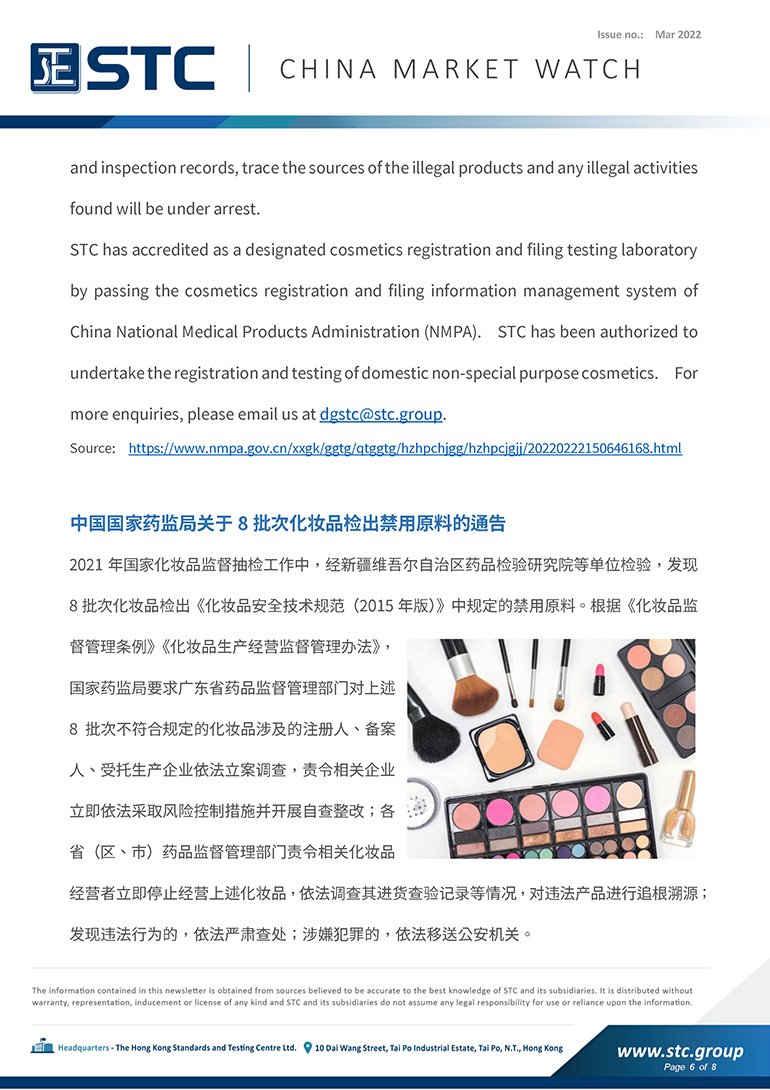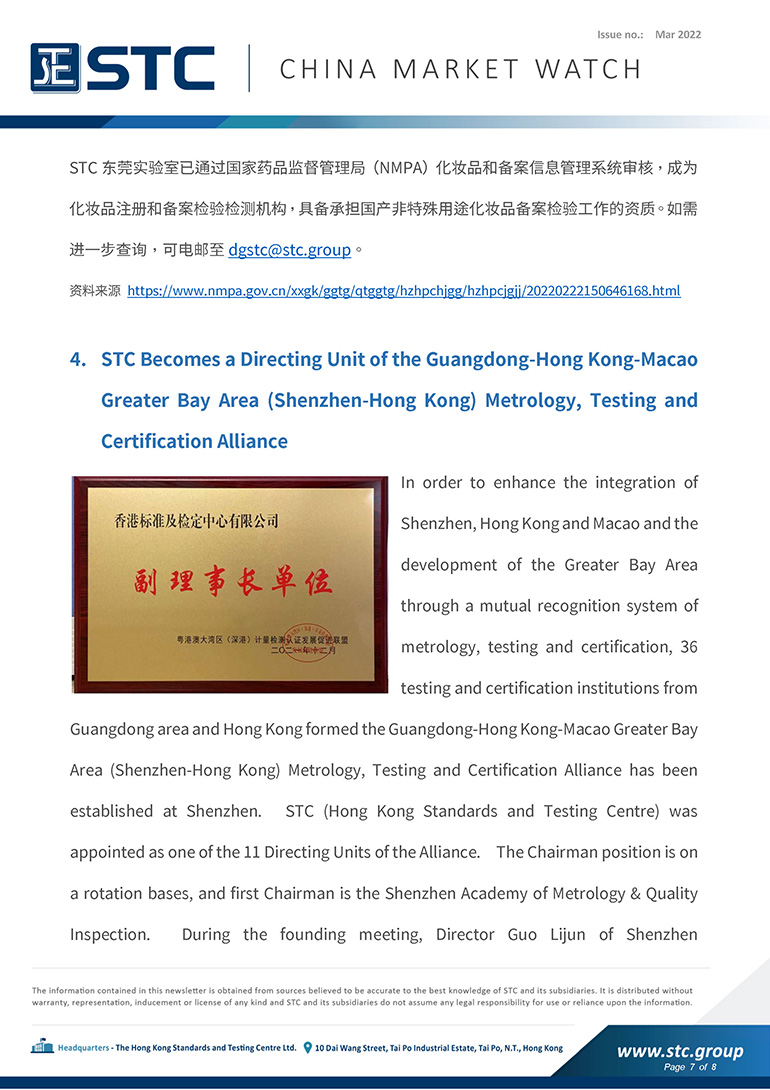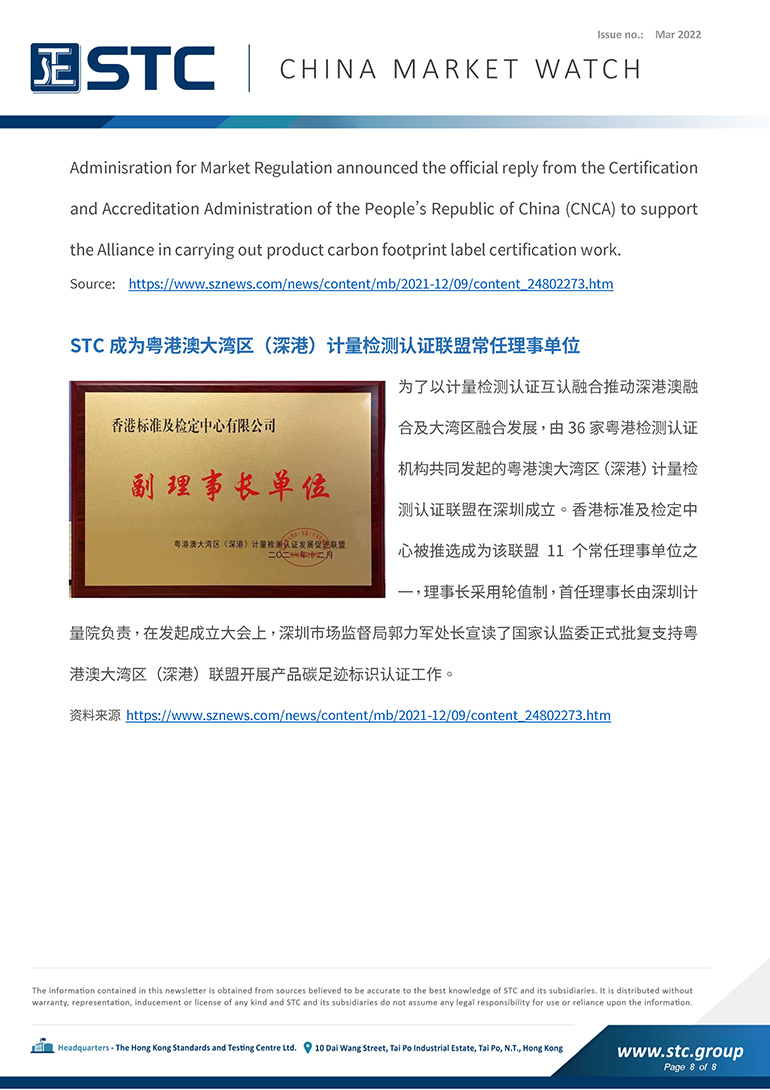1. Various Standards for Aquatic Products and Animal Food in China were Implemented in February 2022
On 1 February 2022, 118 standards related to food products were officially implemented. Among them, the National Food Safety Standards cover the test methods of various residues in aquatic products and animal food (GB 31656 and GB 31658), such as residues of penicillin drugs, mebendazole and metabolites, methaqualone, norfloxacin, ciprofloxacin, enrofloxacin, ofloxacin, oxaquinic acid, and flumequine in aquatic products.
According to the statistics from the Bureau of Fisheries, Ministry of Agriculture and Rural Affairs of China, the total output of the aquaculture products and the aquatic products from catch fishing were 52.242 million tons and 13.2482 million tons in 2020, which were 79.8% and 20.2% of the total output respectively. As the gaps between the two grew wider, there is a genuine need for regulating the quality and safety of aquaculture aquatic products. The new test methods will further improve the safety for food products.
STC’s food testing laboratories can provide testing services for heavy metal contents, drug residues, microbiological analysis and more. For more details, please contact us at hkstc@stc.group.
Source: http://news.foodmate.net/2022/02/619074.html
2. Unqualified Imported Aquatic Products in 2021 Increased 50% Compared with 2020
According to the General Administration of Customs (GACC) related to the forbidden entry of food and cosmetic products, it revealed that GACC inspected a total of 621 batches of unqualified imported aquatic products under the port supervision in 2021. There was an increase of 50% compared with 2020 (414 batches) year-on-year. The total cargo weight was 7,663.3 tons, and the batch and quantity are significantly higher than meat products.
According to the statistics, more than half of the aquatic products were forbidden to enter China in 2021 due to the detection of animal diseases, missing Certificate of Inspection and Quarantine for Entry Goods (lack of agreement), the excessive food additives, and the failure to provide certificates or qualification of materials as required. Besides, there were cases where coronavirus was detected in the cold chain and rejected by the customs.
STC not only provides food product safety testing, we also provide the Novel Coronavirus (2019-nCoV) Surface, Food and Package Swab Test for the early detection of 2019-nCoV contamination on environmental surfaces or regular hygiene monitoring. The test complies with the biosafety guidelines of the US FDA and the CDC. Please contact hkstc@stc.group to learn more.
Source: https://mp.weixin.qq.com/s/LwzT0WFVcBIyg2mZxszVDQ
3. Notice of the China National Medical Products Administration on the Inspection of Banned Raw Materials in 8 Batches of Cosmetics
In the 2021 China national cosmetics supervision and sampling inspection practice, 8 batches of the cosmetics were found containing the banned raw materials as stipulated in the Technical Specifications on Cosmetic Safety (2015 Edition), inspected by the Food and Drug Inspection Institute of the Xinjiang Uygur Autonomous Region and other units. According to the stipulation of the Regulation on the Supervision and Administration of Cosmetics and the Measures for the Supervision and Administration of Production and Distribution of Cosmetics, the China National Medical Products Administration ordered the Food and Drug Administrative Department of the Guangdong Province to investigate the registrants, recordation entities and entrusted manufacturers involved in the abovementioned 8 batches of cosmetics that failed to meet the requirements, which required the relevant enterprises to take risk control measures and carry out self-inspection and improvements. The Food and Drug Administrative Department of all provinces (autonomous regions, and cities) ordered the related cosmetics sellers to stop selling those cosmetics, investigate the purchasing and inspection records, trace the sources of the illegal products and any illegal activities found will be under arrest.
STC has been accredited as a designated cosmetics registration and filing testing laboratory by passing the cosmetics registration and filing information management system of China National Medical Products Administration (NMPA). STC has been authorized to undertake the registration and testing of domestic non-special purpose cosmetics. For more enquiries, please email us at dgstc@stc.group.
Source: https://www.nmpa.gov.cn/xxgk/ggtg/qtggtg/hzhpchjgg/hzhpcjgjj/20220222150646168.html
4. STC Becomes a Directing Unit of the Guangdong-Hong Kong-Macao Greater Bay Area (Shenzhen-Hong Kong) Metrology, Testing and Certification Alliance
In order to enhance the integration of Shenzhen, Hong Kong and Macao and the development of the Greater Bay Area through a mutual recognition system of metrology, testing and certification, 36 testing and certification institutions from Guangdong area and Hong Kong formed the Guangdong-Hong Kong-Macao Greater Bay Area (Shenzhen-Hong Kong) Metrology, Testing and Certification Alliance has been established at Shenzhen. STC (Hong Kong Standards and Testing Centre) was appointed as one of the 11 Directing Units of the Alliance. The Chairman position is on a rotation base, and the first Chairman is the Shenzhen Academy of Metrology & Quality Inspection. During the founding meeting, Director Guo Lijun of Shenzhen Administration for Market Regulation announced the official reply from the Certification and Accreditation Administration of the People’s Republic of China (CNCA) to support the Alliance in carrying out product carbon footprint label certification work.
Source: https://www.sznews.com/news/content/mb/2021-12/09/content_24802273.htm





